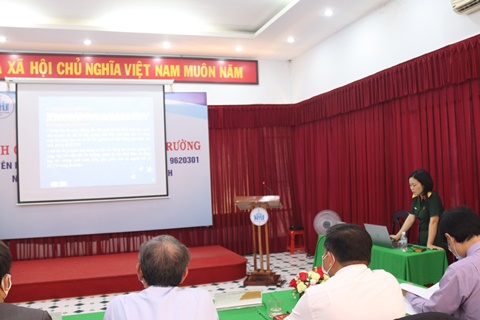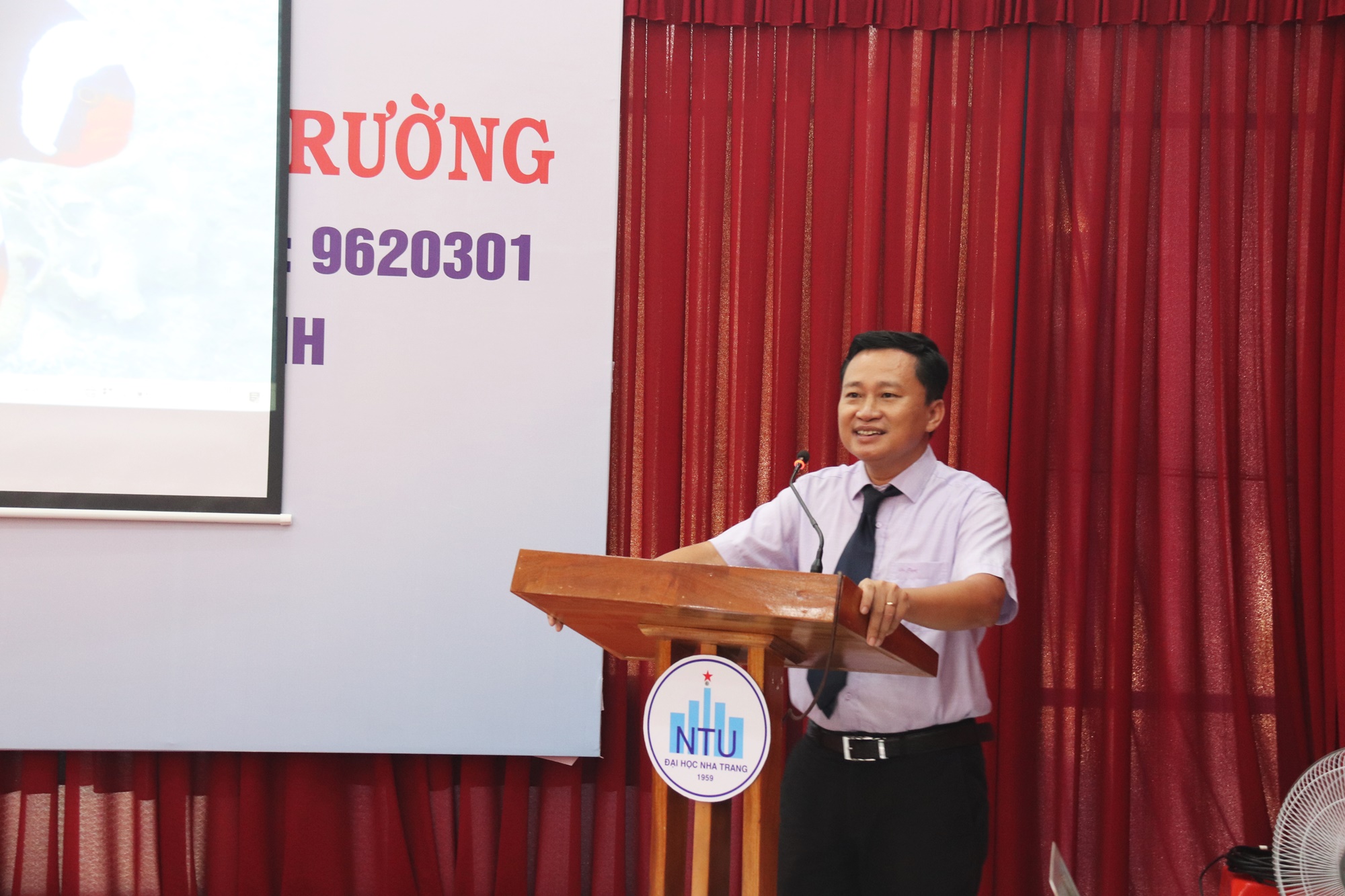The research project conducted by PhD student Nguyen Thi Hai Thanh is titled "Research on reproductive biology and experimental production of artificial breed of saddleback clownfish Amphiprion polymnus (Linnaeus, 1758)". Aquaculture is also one of the first doctoral programs conducted at Nha Trang University since 1988. Up to now, 100 PhD students successfully defended their doctoral theses; in which, aquaculture program has the highest number (38), followed by seafood processing (30), mechanical engineering (17) and fishing technology (15).

PhD student Nguyen Thi Hai Thanh - the 100th PhD student of Nha Trang University is defending her doctoral thesis at the university level
In 1988, with the permission of the Ministry of Education and Training, Nha Trang University officially recruited PhD students for doctoral degrees in Aquaculture, Fishing Technology, and Seafood Processing. This milestone started the development process to become a prestigious postgraduate training institution, especially in the field of fisheries. The first PhD student belonged to Aquaculture program. In 1993, the doctoral program on Seafood Processing (formerly known as Product Technology from Meat and Fish) was launched. In 1996, Ship Engineering and Marine Power Engineering (formerly known as Instruments and Power Components in Ships) started to recruit its first PhD students. In 2000, the University started to train the doctoral program on Fishing Technology (formerly known as Marine Fish Farming and Marine Fisheries). In recent years, Nha Trang University has continuously developed graduate training programs to meet social needs. Specifically, the University started doctoral training in Post-Harvest Technology in 2014; Food Technology and Business Administration in 2020; and Mechanical Engineering, Biotechnology, Economics and Management of Marine Resources in 2021. Up to now, Nha Trang University is allowed to train 11 doctoral programs, of which 5 are traditional programs that are University's strengths such as aquaculture, fishing, processing, mechanical engineering, economics and other new majors to meet the needs of developing high-quality human resources.

Dr. Quach Hoai Nam - Vice Rector of Nha Trang University is sharing the graduate training development of the University.
The graduate programs were designed to balance between basic and specialized modules, focusing on improving specialized knowledge, skills on research, analysis and problem solving for students. Currently, Nha Trang University owns a system of laboratories serving many fields, including high-tech laboratories for chromatography, molecular biology to meet the learning and research needs of graduate students. Up to 2020, the number of permanent lecturers for postgraduate training includes 20 associate professors and 115 doctors.
Over 60 years of building and development, of which more than 33 years of experience in doctoral training, the number and quality of doctoral theses are increasing and initially approaching international and regional training standards. Statistical results show that in the last 10 years (from 2011 to now) 47 doctoral theses have been defended (accounting for nearly 50%), the total number of articles presented at scientific conferences and published in national and international journals is 215. On average, each PhD student published from 4 to 5 scientific articles/ reports, of which 42 articles published in international journals or presented at international conference, accounting for 19.5%. The average number of articles published in domestic scientific journals by PhD students more than doubled the outcomes prescribed in the training regulations of the University. This shows that the training capacity and quality of the University are increasing day by day. Many PhD students graduated from Nha Trang University have been contributing to the development of science – technology, training, production and socio-economic of the country.
The development of postgraduate training, especially doctoral training of Nha Trang University, has achieved certain successes, demonstrating the pivotal role in the implementation of the University's development strategy and vision to 2030, that is “To become a prestigious university in training, research, and technology transfer, a leader in Southeast Asia in fisheries science and some selected areas in marine economy by 2030”.